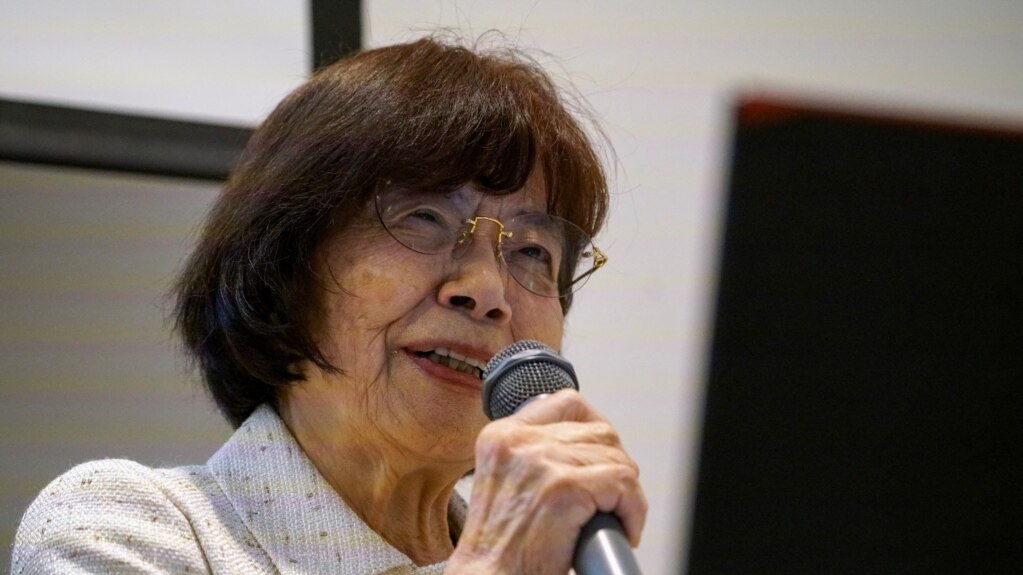Teruko Yahata is 85 years old. But she could have died as a girl.
She was in Hiroshima, Japan on August 6, 1945, when the United States dropped an atomic bomb on the city.
Tens of thousands of people died immediately, and thousands more suffered long-lasting injuries and sickness.
Yahata is known as a hibakusha, or a survivor of the atomic bomb. People such as Yahata visit the city’s memorial sites to tell people about what happened nearly 80 years ago.
She speaks with those who come to Hiroshima to visit the Peace Memorial Museum, which was built to remember the people who died in the bombing.
She remembers the day of the bombing. The sky turned “bluish white,” she said, “I immediately fell to the ground and lost consciousness.”
Starting in 2013, Yahata traveled the world to tell her story. However, she only spoke Japanese. An interpreter, or a person who speaks English and Japanese, would tell her story for her.
But in the following years, she started taking English lessons so she could tell the story with her own voice.
In 2021 she was able to give her presentation in English.
She said it was a dream to learn English so she could “communicate in my own words, my own voice” about what happened that day. Speaking in Japanese, she called what she saw “miserable” and “tragic.”
During her presentation, Yahata reads from a script. The words are hers, translated from Japanese. She practices using a voice recording made by a native English speaker. She has small notes on the paper to help her with the correct pronunciation.
She is not fluent in English, but she speaks well enough so she can read the words and tell her story to people who come from all over the world.
Denise Hickson recently visited Hiroshima and heard Yahata speak.
“It feels very real still,” she said. “When she speaks, she brings it like it’s happening today.”
More than foreign visitors are coming to Hiroshima. It is the home area of Japanese Prime Minister Fumio Kishida. He is bringing world leaders there for the G7 meeting. Kishida is expected to bring the leaders to the Peace Memorial Museum where they will hear from survivors like Yahata.
Yahata said she wants the leaders to work to ban nuclear weapons. “I don't want them to just talk about ideals or release a written resolution,” she said. “I want them to take the first concrete step."
I’m Dan Friedell.

